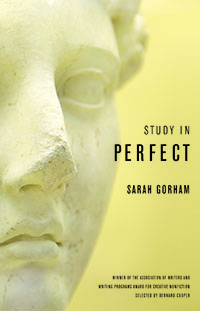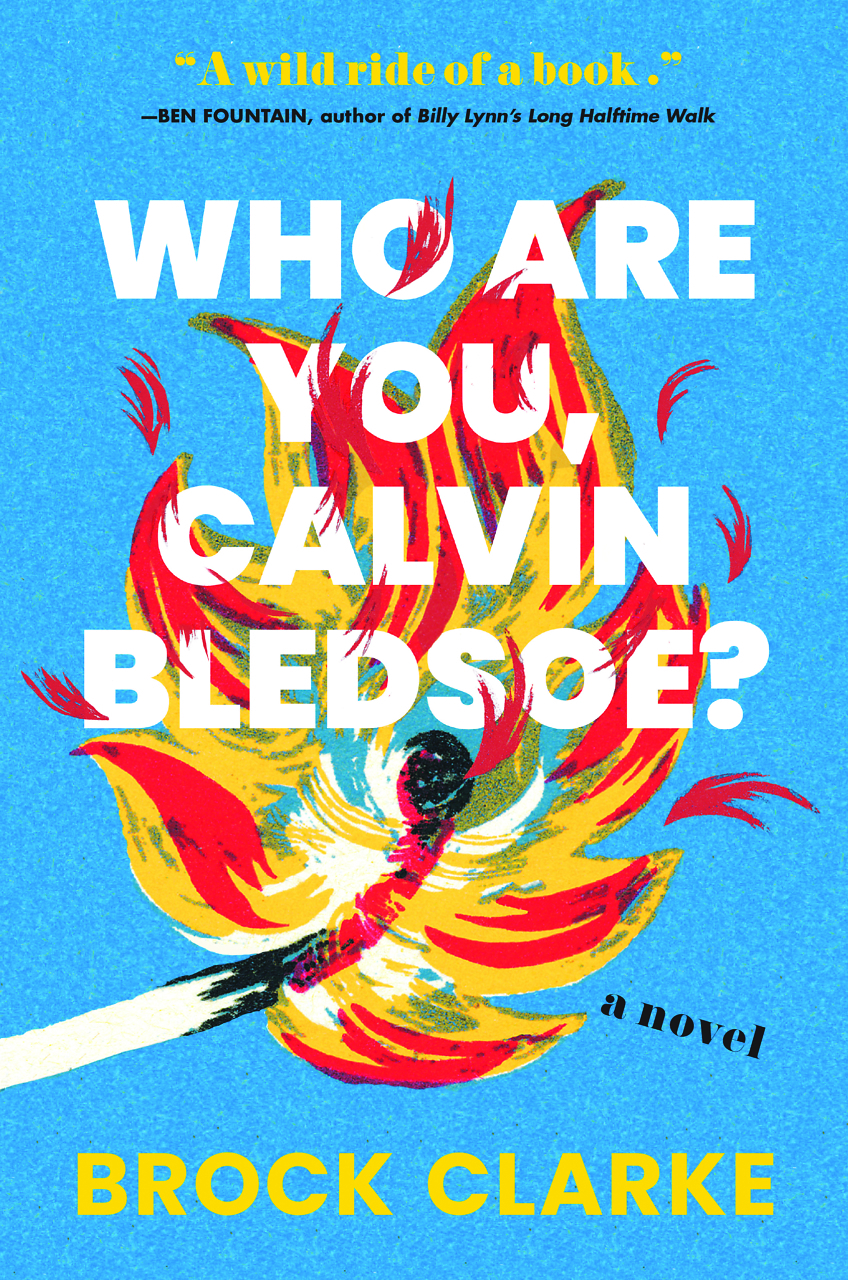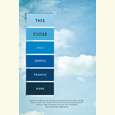A More Perfect Chaos
Poet Sarah Gorham considers the imperfect world in Study in Perfect
In one of the twelve elegant essays that comprise Study in Perfect, Sarah Gorham writes that we are all “made of many selves, not just one.” Few would dispute that statement, and yet most of us remain attached to the notion that our multitude of selves can somehow also be a unified whole. There’s a perpetual, sometimes tense dialogue between the various identities we inhabit and the ideal I who tries to make sense of them all. A similar dialogue occurs in Gorham’s book: these essays wander through a disparate collection of subjects, from poisonous mushrooms to the nature of selfishness, while the concept of perfection hovers in the background via short, intercut meditations that don’t so much tie the essays together as provide a steady point of reference between forays into complex, disorderly reality.
 Gorham explores that disorder with exceptional grace. In most of these essays she mines her own life, deeply and bravely, with touches of humor and unsparing self-analysis. In “A Drinker’s Guide to The Cat in the Hat,” she appropriates Dr. Seuss’s classic story to create a portrait of her husband’s alcoholism and her co-dependence. Her spouse is the dangerous cat—“Raring to go and ready for FUN”—while she is the sober, ineffectual fish, “frowning with wrinkled pink fishy skin.” It seems like a conceit that would grow tedious after a sentence or two, but Gorham makes it work to the last line of this substantial piece, turning the cat into a genuinely frightening figure that can never be entirely banished.
Gorham explores that disorder with exceptional grace. In most of these essays she mines her own life, deeply and bravely, with touches of humor and unsparing self-analysis. In “A Drinker’s Guide to The Cat in the Hat,” she appropriates Dr. Seuss’s classic story to create a portrait of her husband’s alcoholism and her co-dependence. Her spouse is the dangerous cat—“Raring to go and ready for FUN”—while she is the sober, ineffectual fish, “frowning with wrinkled pink fishy skin.” It seems like a conceit that would grow tedious after a sentence or two, but Gorham makes it work to the last line of this substantial piece, turning the cat into a genuinely frightening figure that can never be entirely banished.
In a gentler, sadder piece, “The Changeling,” Gorham writes about her youngest sister, Beckie, who was born cognitively impaired by microcephaly. Beckie never progressed past a mental age of ten months, but the family kept her at home until she was a teenager, with parents, siblings, and even neighbors pitching in to care for her. Gorham’s portrait of Beckie is loving but clear-eyed: “For a few precious years, Beckie was cute. Then she was not so cute, her body an awkward combination of rigidity and slackness. There was no hiding the diaper bulge, or the tea towel knotted around her neck.” Although Gorham invokes the Japanese concept of wabi-sabi to suggest that there is beauty to be found in her sister’s marginal existence, she nevertheless acknowledges that Beckie’s fate haunts her. Beckie is “my little instructor, reminding me never to feel completely safe or too full of pride.”
 Gorham’s disdain for soft self-delusion and self-indulgence takes a more nuanced form in “Sentimental à la Carte,” which catalogs the pleasure she takes in certain literal and figurative forms of schmaltz but casts judgment on the sentimentality that allows us to “give in to emotion till it clouds what we are actually hearing, seeing, or smelling.” The point here seems to be that it’s OK to enjoy bad food and maudlin music without irony, as long as you do it knowingly.
Gorham’s disdain for soft self-delusion and self-indulgence takes a more nuanced form in “Sentimental à la Carte,” which catalogs the pleasure she takes in certain literal and figurative forms of schmaltz but casts judgment on the sentimentality that allows us to “give in to emotion till it clouds what we are actually hearing, seeing, or smelling.” The point here seems to be that it’s OK to enjoy bad food and maudlin music without irony, as long as you do it knowingly.
There’s a relentless quality to Gorham’s objectivity in a lot of these essays. She seems determined to let no one—least of all herself—go unquestioned. She does cut herself some slack in “The Shape of Fear,” a recollection of her daughter’s life-threatening illness that is exquisite in both senses of the word. She makes no apologies for her passionate response to her child’s suffering, and she captures a moment of pure maternal agony in one unforgettable line: “A scream is the prayer of an animal who cannot speak or write or draw or assume the posture of a saint.”
In comparison to the often deeply emotional essays, the brief meditations on perfection—“Perfect Word,” “Perfect Flower,” “Perfect Water,” etc.—are more abstract and impersonal. They’re essentially little prose poems dropped between the longer pieces, and most of their effect is conveyed through imagery. They’re not obviously commenting on the essays they bracket; it’s only through reflection that they gently suggest a certain perspective or subtly raise questions of meaning. For someone reading the collection straight through, they provide a place to land and recover before moving on to the next piece. They are part overture, part divertissement.
Gorham is the author of four poetry collections and serves as editor-in-chief of Sarabande Books, publisher of writers like Mark Jarman and Lia Purpura. In other words, she inhabits a highly literary corner of the writing world. And Study in Perfect is a highly literary collection—it digresses and ruminates and assumes a certain level of sophistication in its reader. There’s nothing inaccessible or opaque about these essays, however. They make use of some conceptual drapery, but they’re really concerned with the messy love and pain of living amid the desire, common to us all, for a life more nearly perfect.

Maria Browning is a fifth-generation Tennessean who grew up in Erin and Nashville. A graduate of Mount Holyoke College, she has attended the Clothesline School of Writing in Chicago, the Moss Workshop with Richard Bausch at the University of Memphis, and the Sewanee Writers’ Conference. She lives in White Bluff.


